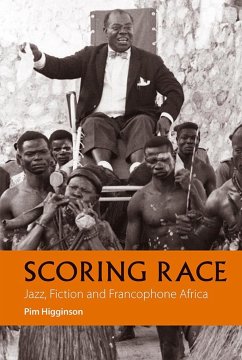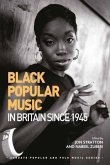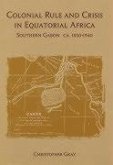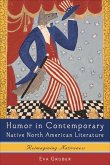Pim Higginson draws on race theory, aesthetics, cultural studies, musicology, and postcolonial studies to examine the convergence of aesthetics and race in Western thought and to explore its impact on Francophone African literature. France's "tumulte noir," the jazz craze between the two world wars, consolidated an aesthetic model present in Western philosophy since Plato that coalesced into French "scientific" racism over the 19th century; a model which formalized the notion of music as black. France's "jazzophilia" codified what the author names the "racial score:" simultaneously an archive and script that, in defining jazz as "black music," has had wide-reaching effects oncontemporary perceptions of the artistic and political efficacy of black writers, musicians, and their aesthetic productions. Reading avant-garde French writers Sartre and Soupault to prize-winning Francophone authors Congolese Emmanuel Dongala to Cameroonian Léonora Miano, Scoring Race explores how jazz masters Louis Armstrong, Duke Ellington, Charlie Parker, and John Coltrane became touchstones for claims to African authorship and aesthetic subjectivity across the long twentieth century. This volume focuses on how this naturalization of black musicality occurred and its impact on Francophone African writers and filmmakers for whom the idea of their own essentialmusicality represented an epistemological obstacle. Despite this obstacle, because of jazz's profound importance to diaspora aesthetics, as well as its crucial role in the French imaginary, many African writers have chosen to makeit a structuring principle of their literary projects. How and why, Pim Higginson asks, did these writers and filmmakers approach jazz and its participation in and formalization of the "racial score"? To what extent did theyreproduce the terms of their own systematic expulsion into music and to what extent, in their impossible demand for writing (or film-making), did they arrive at tactical means of working through, around, or beyond the stricturesof their assumed musicality? Pim Higginson is Professor of Global French Studies at the University of New Mexico, Albuquerque.
Hinweis: Dieser Artikel kann nur an eine deutsche Lieferadresse ausgeliefert werden.
Hinweis: Dieser Artikel kann nur an eine deutsche Lieferadresse ausgeliefert werden.








